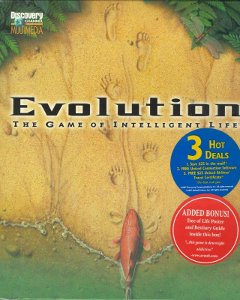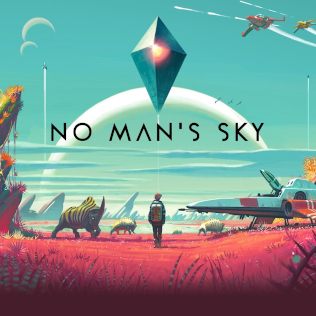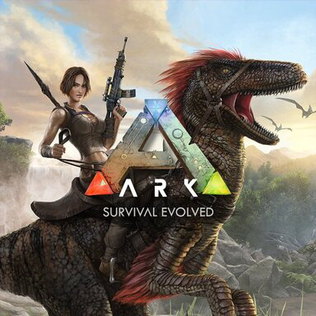
Maxis is an American video game developer and a division of Electronic Arts (EA). The studio was founded in 1987 by Will Wright and Jeff Braun, and acquired by EA in 1997. Maxis is best known for its simulation games, including The Sims, Spore and SimCity.

William Ralph Wright is an American video game designer and co-founder of the former game development company Maxis, and then part of Electronic Arts (EA). In April 2009, he left EA to run Stupid Fun Club Camp, an entertainment think tank in which Wright and EA are principal shareholders.

SimEarth is a life simulation video game, the second designed by Will Wright, in which the player controls the development of a planet. English scientist James Lovelock served as an advisor and his Gaia hypothesis of planet evolution was incorporated into the game. SimEarth was published in 1990 by Maxis. Versions were made for the Apple Macintosh, Commodore Amiga, IBM PC, SNES, Sega Mega-CD and TurboGrafx-16. It was also subsequently re-released on the Wii Virtual Console. In 1996, several of Maxis' simulation games were re-released under the Maxis Collector Series with greater compatibility with Windows 95 and differing box art, including the addition of Classics beneath the title. SimEarth was re-released in 1997 under the Classics label.

E.V.O.: Search for Eden is a side-scrolling action video game developed by Almanic Corporation and published by Enix for the Super Nintendo Entertainment System. Released in 1992 for Japanese audiences, the game was later translated and released in North America in 1993. Combining traditional platforming mechanics with experience and leveling mechanics originating from role playing games, E.V.O.: Search for Eden involves the player navigating a creature through a number of side-scrolling levels while undergoing bodily evolution to cope with ever-changing environments. It is heavily based on Almanic's original title, 46 Okunen Monogatari ~The Shinka Ron~, released exclusively in Japan for the PC-9801 home computer in 1990.
Soren Johnson is an American video game designer and programmer. Johnson's games primarily belong to 4X strategy, with a number of his titles having been critically acclaimed. He is best known for his work as a lead designer on Civilization IV, Offworld Trading Company, and Old World. He also worked on Civilization III as a co-lead designer.

In computing, procedural generation is a method of creating data algorithmically as opposed to manually, typically through a combination of human-generated assets and algorithms coupled with computer-generated randomness and processing power. In computer graphics, it is commonly used to create textures and 3D models. In video games, it is used to automatically create large amounts of content in a game. Depending on the implementation, advantages of procedural generation can include smaller file sizes, larger amounts of content, and randomness for less predictable gameplay. Procedural generation is a branch of media synthesis.

Zoo Tycoon 2 is a business simulation video game developed by Blue Fang Games and published by Microsoft Game Studios and MacSoft. Originally released for Windows, Zoo Tycoon 2 is also available for Windows Mobile, PDA, and Mac OS X, although expansions are not included in the Mac version. A Nintendo DS version, titled Zoo Tycoon 2 DS, was released in 2008.
Life simulation games form a subgenre of simulation video games in which the player lives or controls one or more virtual characters. Such a game can revolve around "individuals and relationships, or it could be a simulation of an ecosystem". Other terms include artificial life game and simulated life game (SLG).
American Megafauna is a board game on the topic of evolution designed by Phil Eklund, and published by Sierra Madre Games in 1997. While the game is not an attempt to be a simulation, a variety of genuine evolutionary factors are incorporated in the game, ranging from Milankovich cycles to dentition. The game can be played in a solitaire mode as well as multi-player. It has subsequently gone out of print.

Evolution: The Game of Intelligent Life, also known as Genetic Evolution: The Race for Intelligent Life in Germany and Evolução: O Jogo da Vida in Brazil, is a life simulation and real-time strategy computer game that allows players to experience, guide, and control evolution from an isometric view on either historical earth or on randomly generated worlds while racing against computer opponents to reach the top of the evolution chain, and gradually evolving the player's animals to reach the "grand goal of intelligent life".
Spore is a video game developed by Maxis and designed by Will Wright, released in September 2008. The game has drawn wide attention for its ability to simulate the development of a species on a galactic scope, using its innovation of user-guided evolution via the use of procedural generation for many of the components of the game, providing vast scope and open-ended gameplay.

Spore Creatures is a spin-off of Spore, developed by Griptonite Games and published by Electronic Arts, in which a player controls and evolves a creature of their creation. It is a science fiction adventure game.

Spore is a 2008 life simulation real-time strategy God game developed by Maxis and published by Electronic Arts for Microsoft Windows and Mac OS X. Designed by Will Wright, it covers many genres including action, real-time strategy, and role-playing games. Spore allows a player to control the development of a species from its beginnings as a microscopic organism, through development as an intelligent and social creature, to interstellar exploration as a spacefaring culture. It has drawn wide attention for its massive scope, and its use of open-ended gameplay and procedural generation. Throughout each stage, players are able to use various creators to produce content for their games. These are then automatically uploaded to the online Sporepedia and are accessible by other players for download.

Project Torque, also known as Level-R outside North America and HEAT Online for the 2010 North American version, is a multiplayer online racing game (MMORG) with partially chargeable content, or micro-transactions, originally developed by Invictus Games. It features gameplay elements such as tuning and customization.

Outerra is a Slovak computer software company best known for its middleware 3D planetary graphics engine, called Outerra engine, in development since 2008. The engine renders high-quality terrain, terrain texturing, flora and water flow normal maps using relatively sparse and highly compressed data through fractal processing and other types of procedural generation. The game Anteworld uses real world data to create a virtual replica of planet Earth.

No Man's Sky is an action-adventure survival game developed and published by Hello Games. It was released worldwide for the PlayStation 4 and Microsoft Windows in August 2016, for Xbox One in July 2018, for the PlayStation 5 and Xbox Series X and Series S consoles in November 2020, and for Nintendo Switch in October 2022, while ports for macOS and iPadOS are in development. The game is built around five pillars: exploration, survival, combat, trading and base building. Players are free to perform within the entirety of a procedurally generated deterministic open world universe, which includes over 18 quintillion planets. Through the game's procedural generation system, planets have their own ecosystems with unique forms of flora and fauna, and various alien species may engage the player in combat or trade within planetary systems. Players advance in the game by mining for resources to power and improve their equipment, buying and selling resources using credits earned by documenting flora and fauna, building planetary bases and expanding space fleets, or otherwise following the game's overarching plot by seeking out the mystery around the entity known as The Atlas.

Ark: Survival Evolved is a 2017 action-adventure survival video game developed by Studio Wildcard. In the game, players must survive being stranded on one of several maps filled with roaming dinosaurs, fictional fantasy monsters and other prehistoric animals, natural hazards, and potentially hostile human players.

Niche: A Genetics Survival Game is an indie simulation video game developed and published by Stray Fawn Studio, and was released on Steam Early Access for Microsoft Windows, Mac OS, and Linux-based systems on September 15, 2016 after a successful Kickstarter crowd-funding campaign. Its main aim is to breed certain traits or genes into a group of canine or feline creatures to make the pack genetically perfect for its environment.
Eco is a simulation game created by American studio Strange Loop Games, in which players have to work together to create a civilization on a virtual planet. The game values a gentle use of natural resources and is used both as an entertainment and educational tool.

Cell to Singularity is an incremental game developed and published by Computer Lunch. An exploration of evolution, naturalism, and civilization, the game uses idle mechanics to help players learn about science and history. Cell to Singularity is an example of a game that uses the freemium model; while the game is free and can be played without spending money, players can buy special "boosts" or in-game currency that will help them to clear difficult levels.

















